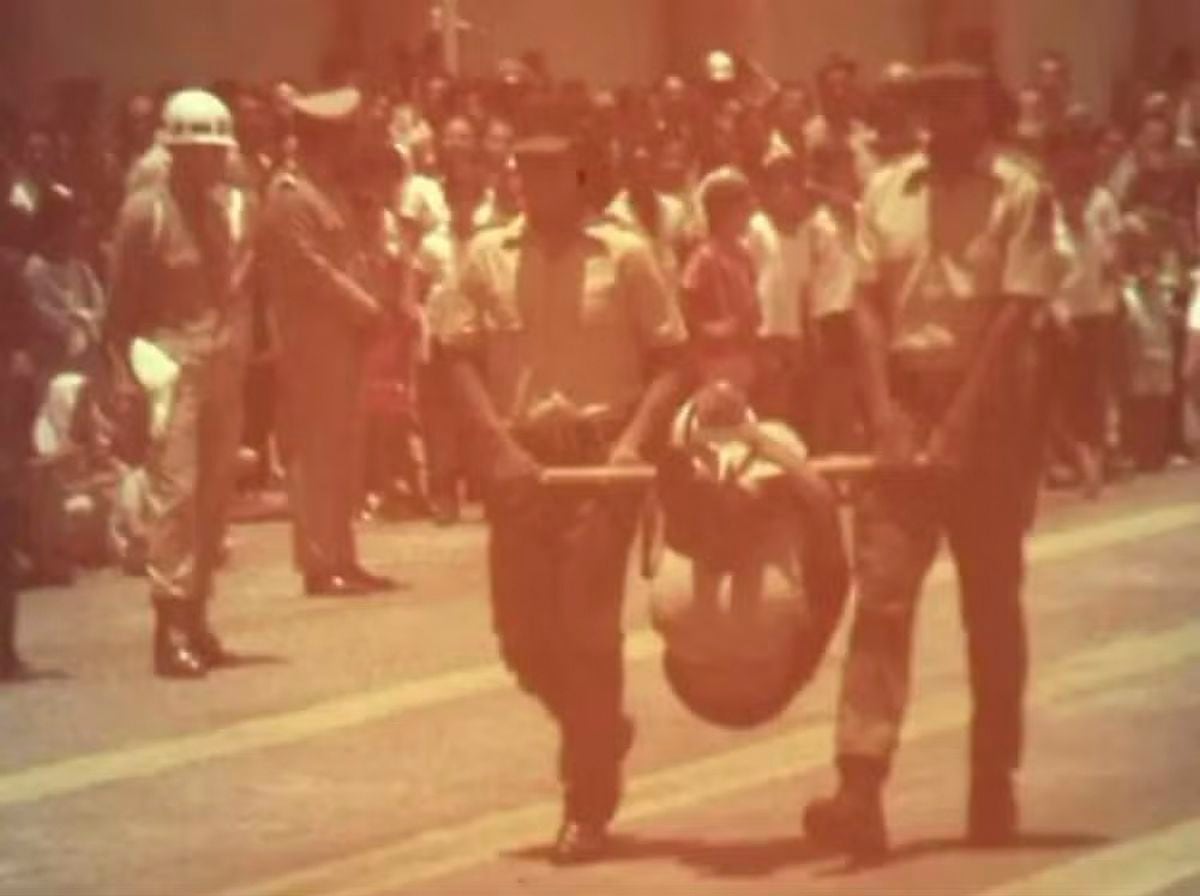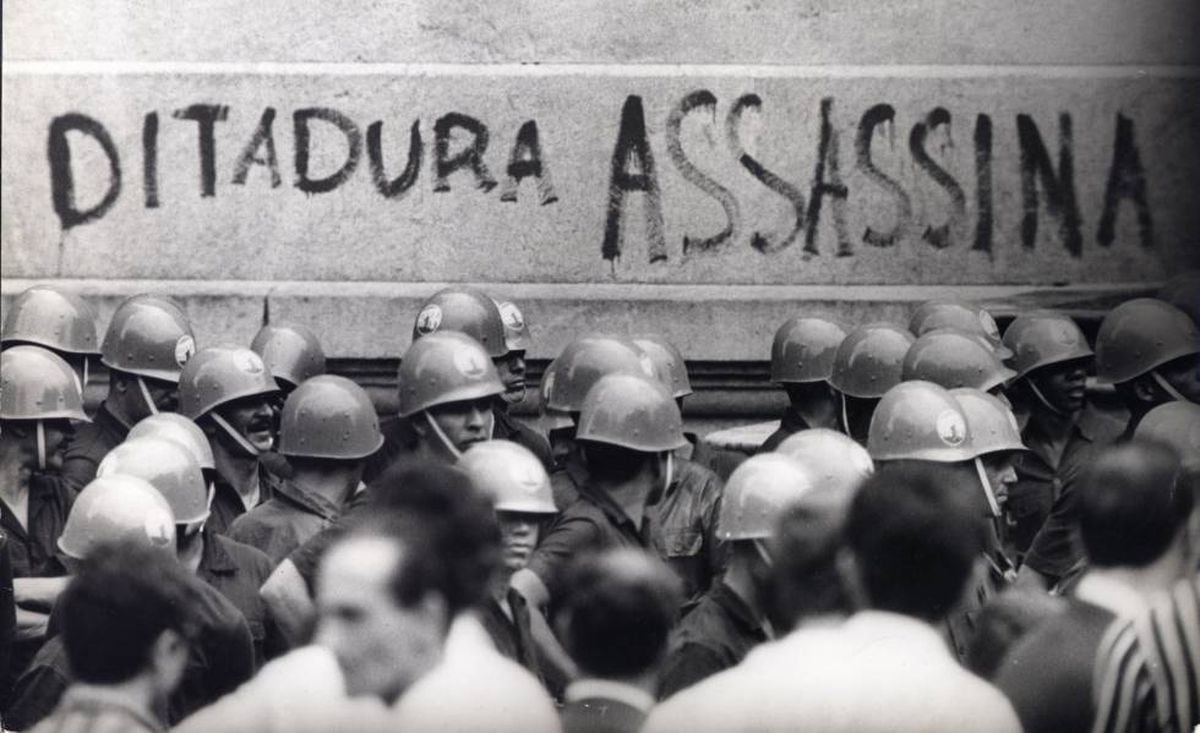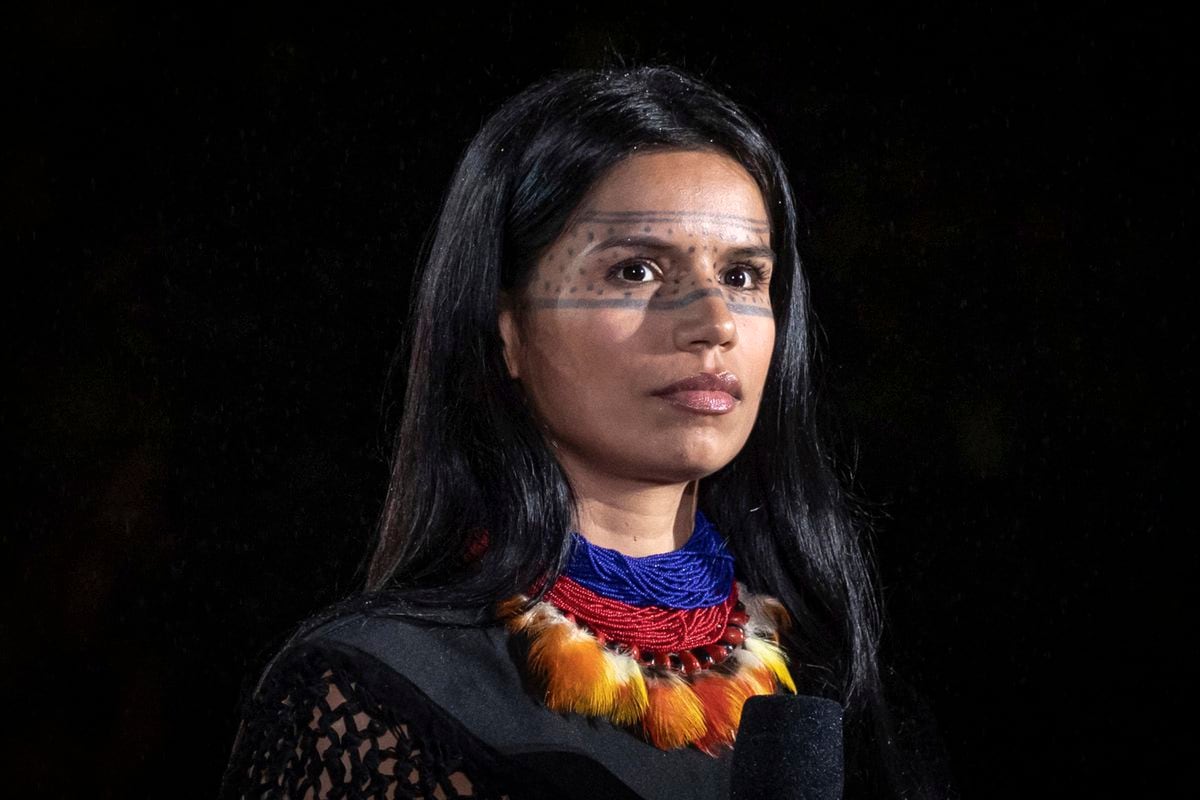Note to readers: EL PAÍS offers the Future Planet section for its daily and global informative contribution about the 2030 Agenda. If you want to support our journalism,
subscribe here.
During the last decade, indigenous organizations began to play a very important role in Myanmar.
The military coup has endangered its progress and is also going to affect the peace process in the country, since now it will be led mainly by the military, without the participation of civil society.
The International Working Group for International Indigenous Affairs (IWGIA) has for years accompanied the situation of indigenous communities in former Burma, documenting cases of human rights violations and supporting activists.
For IWGIA, the coup represents a serious risk to the personal safety of indigenous leaders, who were being important protagonists of the now interrupted process of democratic transition.
The people who defied a dictatorship
Myanmar, the truncated nation
The coup in Myanmar pushes the desperate situation of the Rohingya to the limit
Two weeks after the coup, we spoke by videoconference with the defenders of the main ethnic groups.
“The feeling of fear is very strong.
In the last 10 years, we feel liberated.
Now we have the feeling that our dignity and freedom have been taken from us.
Every night, the government media broadcast military songs.
Unilateral orders are being promulgated.
That's why people are taking to the streets, ”says MT, an activist for a human rights organization.
MT belongs to the Chin people, who live in the mountains of the northwest of the country, on the border with India and Bangladesh.
With the onset of the pandemic, the Arakan Army, the ethnic armed organization, was listed as a terrorist and the Tatmadaw, the Burmese army, began carrying out indiscriminate air strikes in the border regions of Rakhine and Chin State.
There are about 100 indigenous peoples in Myanmar, most of whom live in the border areas with India, China, Bangladesh, Laos and Thailand.
They make up almost a third of the country's population.
The armed struggle for the self-determination of these minorities began shortly after the country's independence, in 1948. The military government that was in power without interruptions from 1962 to 2011 promoted the so-called
Burmanization
process
, a policy of forced assimilation of the peoples autochthonous.
This policy included promoting Buddhism - the religion of Myanmar's ethnic majority - in non-Buddhist areas, putting obstacles to the learning of ethnic languages and oppressing other indigenous cultural practices.
“A friend called me at four in the morning and told me that the military had arrested the President and the State Councilor.
The Internet was down and I couldn't confirm it. "
John, 31, is a member of a group that works to defend the rights of indigenous minorities.
It belongs to the Naga people, made up of 4.5 million people who live in northwestern India and Myanmar.
There are about 100 indigenous peoples in Myanmar, the majority living in the border areas with India, China, Bangladesh, Laos and Thailand.
They make up almost a third of the country's population
John belongs to the so-called Generation Z, made up of those born between 1990 and 2010 who, since the military coup of February 1, are the real protagonists of the massive protests in the streets of Myanmar.
One of their slogans is: "You have messed with the wrong generation."
“The generation of our parents could not prevent neither the coup of 1962 nor the one of 1988. We do not want to repeat that mistake.
Because now we have a better understanding of the problem and also better communication systems with the outside world ”, he says.
According to John, the germ of the coup is found in the 2008 Constitution, drawn up by the military, where they ensure control of the legislative and executive powers.
“Furthermore, as the military dominate the National Security Council, they have the power to declare a state of emergency.
And thus control the National Defense and Security Council and, ultimately, the entire country. "
The importance of communications is evident in the internet cuts, which have occurred since 2019 in conflict zones.
“Now, in the last two weeks, they have blocked the internet across the country on several occasions;
the military needed time to complete the coup.
His plan was to keep us disconnected so he could do it smoothly. "
“It is not a new fact.
In our territories there is a military presence that we have endured for decades.
During periods of dictatorship, indigenous people have faced so many human rights violations that we can hardly count all the types of abuses we suffer.
According to a study, in one of the regions of the country inhabited by these peoples, 80% of adults have been subjected to forced labor.
There is a denial of our freedom of religion and belief ”, says MT. 80% of the members of his ethnic group, the Chin, profess Christianity, which is a minority religion in Myanmar, with a Buddhist majority.
“They have begun to arrest the leaders of the different groups in which the protests are organized: teachers, workers, indigenous people ... They are pointing out the most prominent figures of the movement.
The military can shut down the entire communications system and leave us in the dark.
A few days ago, the Ministry of Communication issued an order to draft a bill on electronic communication.
We have not seen it, but it is a clear attempt to prevent the mobilizations from being organized online ”, John completes.
MT adds: “Being our personal safety a priority, as activists we must have a plan b: establish alternative modes of communication, have security measures for the records of human rights violations.
If the coup persists in two weeks and the military takes hold in the Administration, its objective will be to prevent activists from sending messages to the international community ”.
Looking to the future
Regarding the future, John says he is not feeling very optimistic.
“Restoring democracy or Aung San Suu Kyi [state councilor and country's leader, Nobel Peace Prize winner arrested by the military on February 1, 2021] will not solve the underlying problem of the indigenous peoples of Myanmar.
A change is needed towards a federal structure in which indigenous peoples can achieve our self-determination ”.
To achieve this goal, the unity of all of them is the key.
"My mood fluctuates every day, but I try to be optimistic and realistic," says MT "Now we need at least 80% of the officials who work for the Government to join the protest movement."
The Military Administration uses intimidating means to ensure that public officials do not participate in the demonstrations.
The victory of the protesters would offer an opportunity to establish an inclusive and democratic country, where the rights of indigenous peoples are recognized and respected.
"To make matters worse, some of the people appointed to form part of the structures of the State Administrative Council, the de facto government, at the national and regional levels, are indigenous leaders," continues the Chin defender.
“We are very concerned that they will use them to oppress their own people.
This is the rule of
divide and
rule
that they learned from the British.
The current situation in Myanmar could develop in either direction.
On the one hand, the military junta may take the path of violence and terror against the protesters.
In this case, the country could return to the situation prior to the democratic transition, with little space for civil society and almost total control of the population.
Abuses against indigenous peoples would not only continue, but possibly worsen.
And with civil society suppressed, it is going to be difficult not only to hold those who report crimes accountable, but even to document abuses.
Instead, the victory of the protesters would offer an opportunity to establish an inclusive and democratic country, where the rights of ethnic minorities are recognized and respected.
The attention and pressure of the international community on the military junta could play a decisive role in the outcome of the protest and the future political model of Myanmar.
* To preserve your safety, the real names of the interviewees are omitted.
Nikita Bulanin
is a program coordinator for human rights defenders and
Rocío Westendorp
is a consultant at
IWGIA
(International Working Group for Indigenous Affairs).
FUTURE PLANET can follow on
,
and
, and subscribe
here
to our 'newsletter'
.





/cloudfront-eu-central-1.images.arcpublishing.com/prisa/AYBDQARVBB2WDG6IFPXHYFIMBM.jpg)
/cloudfront-eu-central-1.images.arcpublishing.com/prisa/XWDEWCZPBVCCDFB3VJU2TWK5PY.jpg)
/cloudfront-eu-central-1.images.arcpublishing.com/prisa/MG6G7DJUBNBLRNE2DSTK4WZYTY.jpg)
/cloudfront-eu-central-1.images.arcpublishing.com/prisa/PGFLWZYGBFG7FBITHUY7ILSNBQ.jpg)






